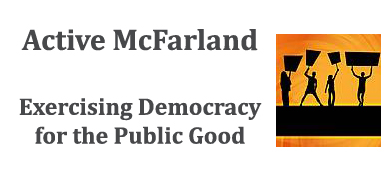Ron Berger --
This article was initially published on Wise Guys, Jan. 8, 2020.
When I think about the myriad issues that are being raised during the current Democratic Party presidential primary, I am reminded of the advice given by James Carville, Bill Clinton’s political strategist, during the 1992 presidential campaign: “The economy, stupid.” It is often the case, however, that when people think about the economy they are thinking about elements such as un/employment, economic inequality, wages, the stock market, economic growth, and the like. What they tend not to be thinking about is antitrust law. To some, antitrust law seems like an esoteric topic. But it should not be. In fact, it should be at the forefront of policies that are being discussed by the presidential candidates and that need to be pursued by the next Democratic president. Among the candidates, to their credit, Senators Amy Klobuchar (MN), Bernie Sanders (VT), and Elizabeth Warren (MA) are the only ones who have spoken about and offered plans to make antitrust law enforcement a priority for their administrations, with Warren offering the most far-reaching and detailed plans overall.
The initial framework for antitrust law in the United States was…

